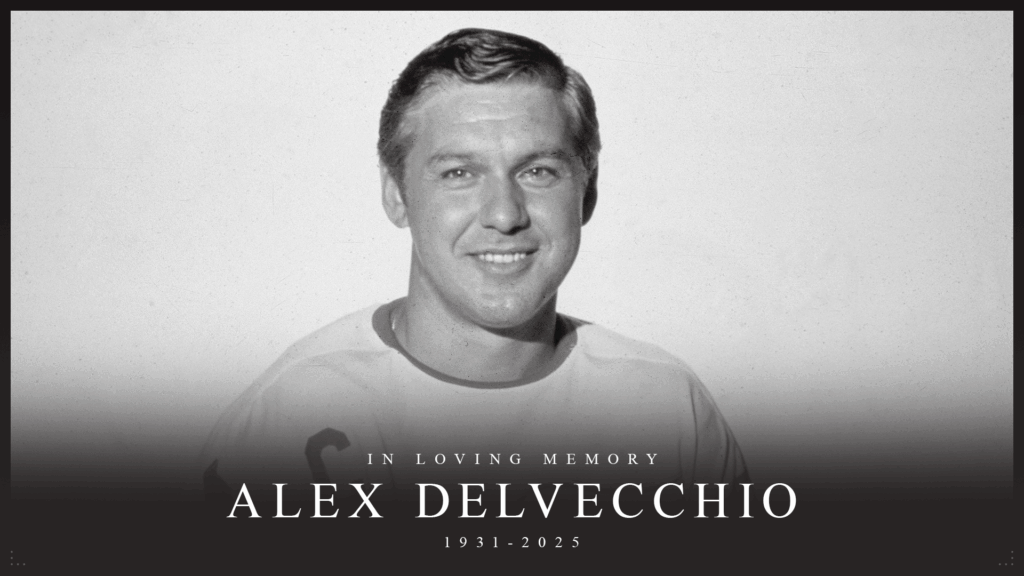
Introduction
Alex Delvecchio, a name synonymous with excellence in the world of ice hockey, is a revered figure in Canadian sports history. His contributions to the game have left a lasting mark, notably as a former captain of the Detroit Red Wings. Born on December 3, 1931, in Fort William, Ontario, Delvecchio’s journey to becoming a hockey legend is a testament to dedication and skill, making him a pivotal part of the narrative of Canadian hockey.
Career Highlights
Delvecchio’s professional career in the National Hockey League (NHL) spanned an impressive 24 seasons, all with the Detroit Red Wings. He debuted with the team in 1950 and quickly established himself as a formidable center known for his scoring ability and playmaking skills. During his time, he secured three Stanley Cup championships (1952, 1954, 1955) with the Red Wings and was inducted into the Hockey Hall of Fame in 1979. His number 10 jersey was retired by the Red Wings in 1974, solidifying his status as a franchise icon.
One of Delvecchio’s most noteworthy accomplishments was his inclusion in the NHL All-Star games, where he showcased his talent on a larger stage. He participated in 15 All-Star games and was recognized as one of the best players of his era, earning a spot on the NHL’s Second All-Star Team several times throughout his career. His offensive statistics are equally impressive, recording over 1,200 points in regular-season play—an achievement only a few have accomplished.
Impact on the Game
Beyond his individual accolades, Delvecchio is often credited with shaping the style of play for future generations. Known for his exceptional vision on the ice, he played a crucial role in developing the strategies that characterized the Red Wings’ play. His leadership qualities also inspired many young hockey players, as he displayed sportsmanship and humility throughout his career. Delvecchio’s contributions extended off the ice, as he took on coaching and management roles within the league after his retirement, further emphasizing his dedication to the sport.
Conclusion
Alex Delvecchio’s legacy is not just that of a skilled player but also of a leader who has significantly influenced the game of hockey. As the sport continues to evolve, Delvecchio’s contributions serve as a reminder of the values of commitment and performance. With ongoing discussions regarding the future of hockey and its growing popularity, aspiring players and fans alike will continue to look back at Delvecchio’s career as an example of what it means to excel in this beloved Canadian pastime. His story resonates with both seasoned fans and new generations, ensuring that he remains a central figure in the ongoing narrative of hockey history.



